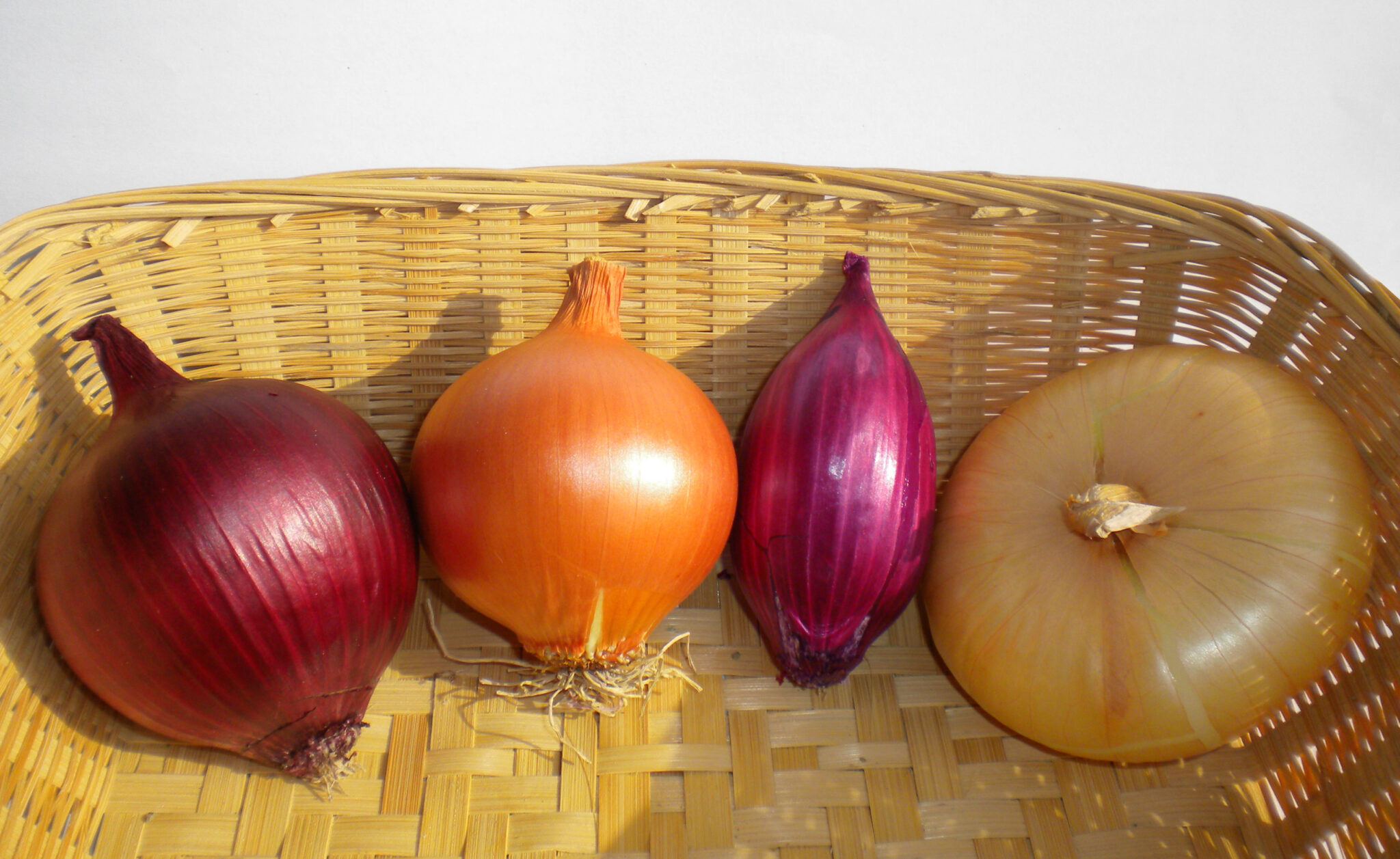A true Umbrian excellence that comes in three types: red, golden and flat, each with different characteristics and uses.
When you think of Cannara, the first thing that comes to mind is the onion. A product inextricably linked to this territory, whose cultivation has been practiced with care and dedication for several generations. A small bulb that grows in the earth and that on the table is transformed into a jewel with an unmistakable flavor; a true excellence of Umbrian agriculture, so much so that it has been the undisputed protagonist – for over forty years – of the famous Cannara Onion Festival, where you can taste the most diverse dishes, all strictly based on onion.
It does not have a specific seed that differentiates it from other onions, but the fact that it is grown in Cannara makes it unique and a gastronomic delicacy. Its secret, in fact, must be sought in the shape and composition of the soil of Cannara, of lake origin, sandy-silty and with gentle slopes, which ensures excellent drainage to the plots: it is a perfect place for growing bulbs. The first documented traces of its presence date back to 1500, when the Cannaresi brought it for the first time to the Assisi market; but it is in 1800 that its cultivation is certain and documented.

A product that has unique and excellent qualities and properties, starting with the sweetness and tenderness of the pulp, which comes in three different types: red, golden and flat – united by aroma and consistency, but each with different characteristics that allow for a very varied use. The red onion, the one that is most identified with Cannara, can be eaten raw in salads, with fish or in croutons, or it can be used for jams and compotes. The golden onion is ideal for sauces, parmigiana and soups. Finally, the flat onion is perfect for use in baked recipes.
This bulbous plant is made up largely of water, but also contains a good amount of fiber: it is rich in vitamin C and folic acid, calcium, potassium and phosphorus. It stimulates digestion and metabolism and boasts antioxidant and anti-inflammatory properties; it contains good quantities of quercetin, a flavonoid that helps keep cholesterol and triglyceride levels in the blood at bay. In addition to fats, onions can also have a positive effect on glycemia, thus reducing blood sugar levels.

